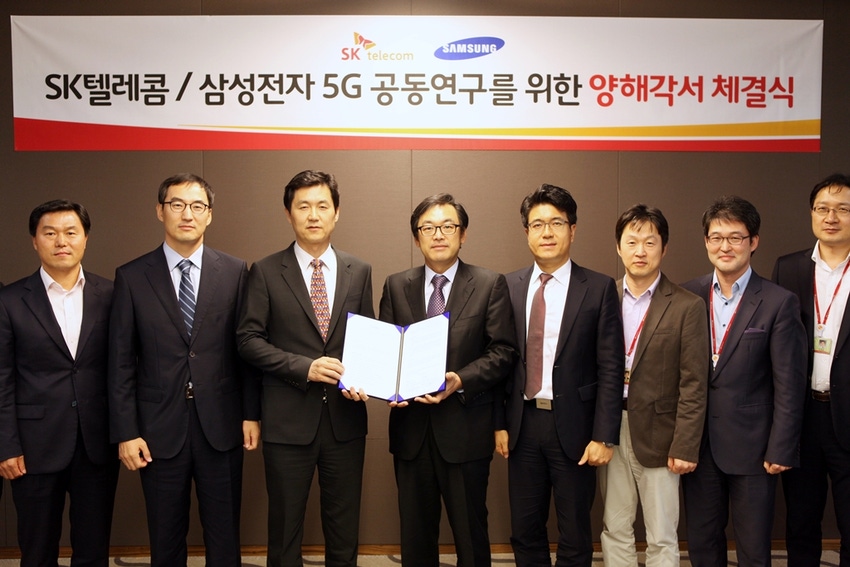South Korean telco and handset manufacturer, SK Telecom and Samsung respectively, have announced a joint memorandum of understanding (MOU) in a bid to advance 5G research and development. The agreement will centre on providing large-volume and high quality services on gigabit data rates, such as augmented reality (AR).
October 20, 2014

South Korean telco and handset manufacturer, SK Telecom and Samsung respectively, have announced a joint memorandum of understanding (MOU) in a bid to advance 5G research and development. The agreement will centre on providing large-volume and high quality services on gigabit data rates, such as augmented reality (AR).
While 5G is currently an undetermined and unstandardised technology, the MOU has seen SK and Samsung agree to cooperate with 5G standardisation groups and technology forums around the world. The NGMN (Next Generation Mobile Network Alliance) is actively pursuing standardisation of viable 5G platforms, with Apple being a notable recent addition to the working group.
It is widely considered 5G will bring more than 1,000 times additional data capacity opportunities to the individual user than LTE is currently capable of. This could potentially see speeds of more than 1Gbps per user over a densely connected network.
SK is allegedly keen to experiment with highly immersive services on 5G, with high density services such as AR, virtual reality (VR), telepresence and hologram projection. In addition, advanced internet of things technology will be targeted by the telco.
“We expect the two companies, mobile carrier and mobile network manufacturer, will share vision for 5G through the joint research, and thereby generate synergy effect in the development of the next generation telecommunications technology,” said Alex Jinsung Choi, Executive Vice President and Head of SK Telecom’s ICT R&D Division. “SK Telecom will strive to provide differentiated high-quality service to our customers by leading technology development of 5G network.”
Samsung, meanwhile, see the MOU as another example of Korea’s leading position in the telecoms industry. “The 5G communications system needs an ecosystem where operators and manufacturers cooperate in areas of related standards, devices, network equipment, new services and etc,” said Kyungwhoon Cheun, SVP and head of communications research of DMC R&D centre at Samsung. “Through this opportunity of cooperation between the two companies, therefore, I believe Korea will continue to lead mobile communications network in 5G as it does in 4G.”
Samsung tested 5G speed capabilities last week, reporting potential mobile connectivity speeds in a moving environment of up to 150MB per second. With roughly 10 years separating the arrivals of 3G and 4G respectively, it appears that exponential growth of connected devices and high density data services are driving the telecoms industry to realise 5G sooner rather than later.
About the Author(s)
You May Also Like








.png?width=300&auto=webp&quality=80&disable=upscale)


_1.jpg?width=300&auto=webp&quality=80&disable=upscale)


.png?width=800&auto=webp&quality=80&disable=upscale)